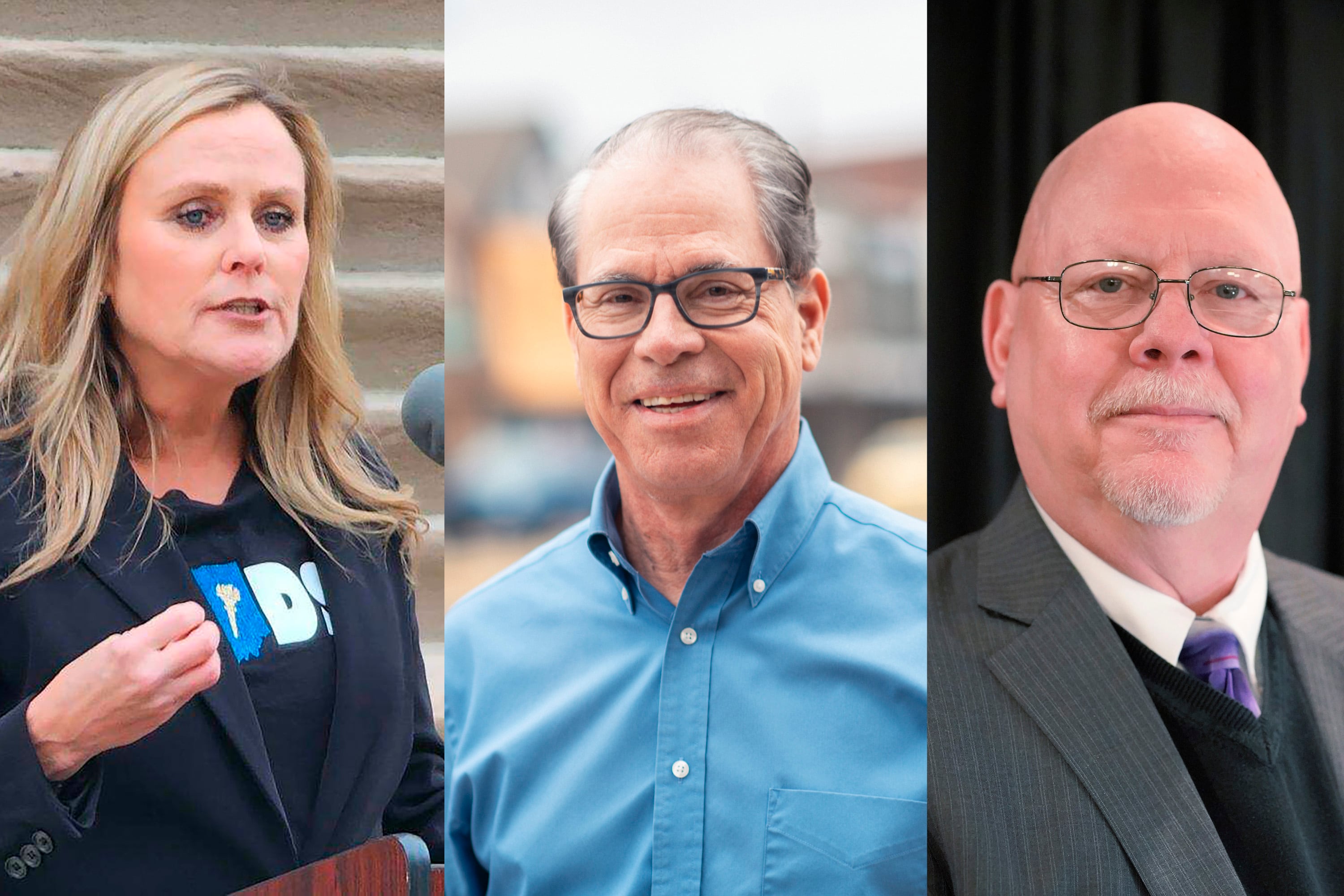Sign up for Chalkbeat Indiana’s free daily newsletter to keep up with Indianapolis Public Schools, Marion County’s township districts, and statewide education news.
Three candidates are running for Indiana governor and a chance to shape education policy in the state — Republican U.S. Sen. Mike Braun, Democrat Jennifer McCormick, and Libertarian Donald Rainwater.
Their views differ significantly, particularly on questions of education funding that are likely to take center stage when the next legislative session starts in January.
While Braun has indicated support for universal access to private school vouchers, Rainwater, a software engineer, supports universal ESAs, which would give families state funding for the classes and activities of their choosing, not just private school tuition.
Meanwhile, McCormick, the former superintendent of public instruction, has pointed out that choice funding has siphoned money from public schools, which enroll 90% of Hoosier students.
We asked the three candidates for Indiana governor to answer seven questions about their plans for education, including how they would tackle absenteeism and improve teacher retention and recruitment.
Rainwater and McCormick answered our questions, while Braun’s campaign provided a link to his education platform in response. Where relevant, Chalkbeat included points from his website that answered our questions.
Early voting begins on Oct. 8. Early voting sites can be found here.
Aleksandra Appleton covers Indiana education policy and writes about K-12 schools across the state. Contact her at aappleton@chalkbeat.org.






